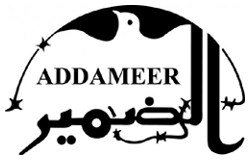![Andoni believes the film is an important way to raise awareness of the reality that Palestinians endure under occupation [Tobias Schwarz/AFP]](http://www.theprisonersdiaries.net/wp-content/uploads/2017/03/022d23c4315f41afaf918e9c7ad5be25_18.jpg)
Andoni believes the film is an important way to raise awareness of the reality that Palestinians endure under occupation [Tobias Schwarz/AFP]
The film explores the hidden trauma of Palestinians who have passed through the notorious Al Moskobyia detention centre in Jerusalem. Andoni began the project by placing an ad in a local newspaper calling for former detainees of Al Moskobiya, stipulating that the men must have expertise as carpenters, craftsmen and architects.
|
|
The film, which also sheds light on Andoni’s own experiences at Al Moskobiya three decades ago, aims to expose the trauma that Palestinians endure regularly in Israeli detention.
Having Palestinians relive these experiences has been criticised by some as ethnically problematic, but Andoni believes that the film is an important way to raise awareness of the reality that Palestinians endure under occupation.
“If you can’t handle what you see on screen,” Andoni said, referring to the violent turn of the interrogations in Ghost Hunting, “then you should not be OK with the Israeli occupation of Palestinians, period.”
After his win at the Berlinale film festival for best documentary, Al Jazeera interviewed Andoni about how the documentary came about, the trauma of former Palestinian detainees and what he thinks of the criticism.
READ MORE: Occupied words: On Israel’s colonial narrative
Al Jazeera: How did the idea for Ghost Hunting develop?
Andoni: I started off wanting to do a film about the experience of Palestinian prisoners, but as I was doing my research and talking to prisoners, I saw that the full scope of emotions was deeper than a fictionalised story, and it would not be fair to script it.
| If you’re going to start a conversation about humanity and ethics, you should also have the courage to talk about Israel. |
The film has no actors. They are protagonists. They are in charge of what they decide to portray, because people who have experienced detainment and torture are survivors. They have the agency to perform their pain.
The prison you see in the documentary is not history; it still exists today. Palestinians are still regularly incarcerated and tortured, and no one has ever glimpsed what Al Moskobiya looks like on the inside. So I asked my protagonists to rebuild it from their memories.
That melding of fiction and reality the audience sees, begins to happen as an empty warehouse in the middle of Ramallah is being turned into a detention cell.
That’s the moment of truth, when you see the reality of what real prisoners have gone through as their memories take over and they find that outlet for their own stories.
READ MORE: The day I met my father in an Israeli jail
Al Jazeera: Was the documentary an attempt to heal trauma?
Andoni: I did have a psychologist on board, who advised me to tell the documentary participants they were free to step out whenever they want. So no one was forced to be there or take part in what played out.
However, the project was not a form of healing. I do not want people to sympathise with them. It’s a way for a conversation to be started about imprisonment, torture and detention centres like Al Maskobyia.
When a former prisoner turns into their interrogator, he adapts his experience – it becomes tangible behaviour. The learning happens when you see the two frames side by side. The very place that is arguably out of the protagonists’ nightmares becomes the space in which they express themselves.
That’s why I called it Ghost Hunting; the ghosts are the trauma, but they aren’t really being hunted, they’re being let out.
 |
| ‘If you can’t handle what you see on screen, then you should not be OK with the Israeli occupation of Palestinians, period’ [Courtesy of Berlinale] |
Al Jazeera: The film isn’t heavily edited; why is that?
Andoni: The documentary conveys reality. It does not attempt to play at fiction. I had a loose script before the filming starts, but I quickly scrapped that. The set was a space for honest, raw expression, and the cameras are constantly rolling, so you can see everything.
Al Jazeera: What would you say to people who have criticised the film as “unethical”?
I would say if you’re going to start a conversation about humanity and ethics, you should also have the courage to talk about Israel. They are the ones who built the centre in the first place.
Those who took part in the documentary always had the opportunity to leave. When they were imprisoned by Israeli officers, there was no way out. They were forced to stay there, forced to survive the torture.
There are 700,000 Palestinians who just can’t leave the horror they’re living in at places like Al Moskobiya. If watching 20 people relate their experience is tough, imagine the trauma the rest of the Palestinian population has no choice but to live through.
READ MORE: Coercion, violence and threats – Torture, Israeli-style
Al Jazeera: Did you imagine that the documentary would win awards?
Andoni: For me, the greatest recognition I received was when I screened the film for the first time in Ramallah. Ninety percent of the audience there were former prisoners.
The narrative of the film is Palestinian, so of course the audience in Ramallah understood what they were seeing on a different level from people who have never lived through trauma.
The audience in Ramallah laughed at some scenes, cried at others and after the credits rolled, I swear to you, there was a large crowd of people standing outside the theatres in groups talking about their experiences in Israeli prisons.
That’s the conversation I wanted to create, and that for me is real recognition.
Source: Al Jazeera




